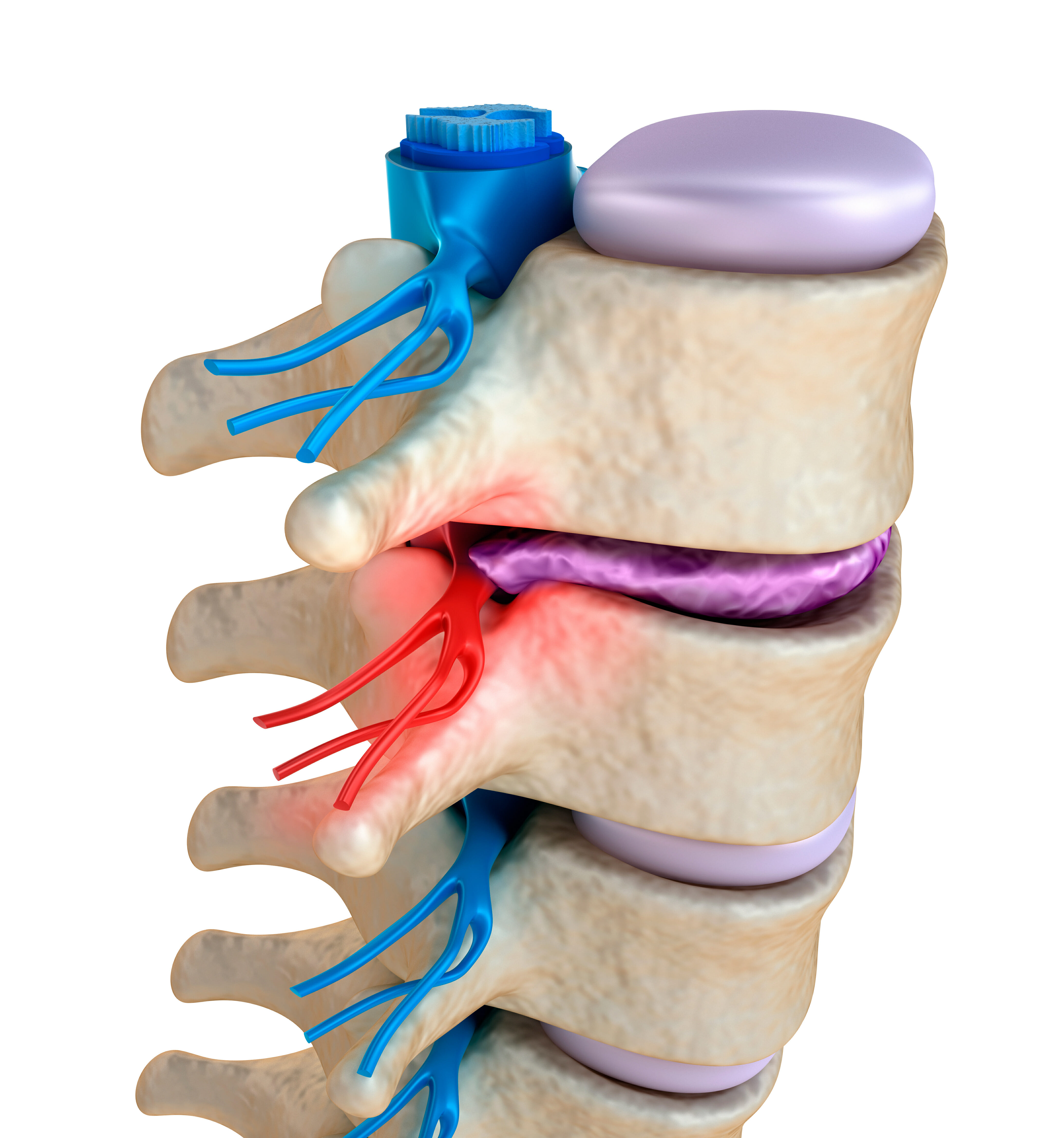What is a Pinched Nerve?
Pinching means to squeeze or compress and cause pain with enough pressure. When a nerve is compressed the result is often pain, but can also give rise to numbness and weakness. Nerves can get pinched in several locations around the body, but the most common place a nerve gets pinched is in the back.
There are many ways that a nerve gets pinched in the back, but two common ways are a herniated disc, spinal stenosis or foraminal stenosis. The main difference between these three types of compression or pinching is that a disc is more acute where stenosis is more gradual over a long period of time.
In many ways, nerves are very similar to the electrical wires running through your house. They usually branch off of a larger trunk of wire after entering your house. Each wire that branches off will go to a different room of your house or supply power to an appliance. There is a similar setup in your body. The main trunk of wires runs down your spinal cord and “wires” or nerves will branch off at various levels and exit the spine to travel out to a leg or foot.
Think of your leg or foot like a room in your house. If something happens to the wire going to that room of the house, then nothing electrical will work. In your house the electricity is either all on or all off. A nerve would have to be completely cut or severed to be all off. In the body there are grades of “on and off” as a result of the extent of pinching. One of the main reasons that nerves get pinched in the body is because the body is always moving and things inside of the body move as well, like a disc herniation.
The location of where the pinching occurs is very important. If the pinching occurs on a single nerve, then a certain part of the buttock, thigh, leg or foot will hurt. This would be an example of sciatica or radicular pain from foraminal stenosis or a disc herniation. If the pinching encroaches on a nerve “trunk”, then both legs can hurt or stop working, like a large herniated disc or severe spinal stenosis. A large herniated disc that compresses the sacral nerves with loss of bowel and bladder control is called cauda equina syndrome.
What happens when a nerve gets pinched?
If a nerve is gets pinched, one of three things can happen: pain, numbness or weakness. Obviously, the amount of pinching will influence this. You will usually feel numbness and/or pain before weakness is noticed. A pinched nerve commonly has a combination of these symptoms. Like the wires in your house, the large nerves in your back are very specific about where they go, so that’s why you can feel “a strip” of pain down a thigh or leg with nerve compression.
There are also very small pain nerves that don’t really branch off a large trunk, but seem to be almost everywhere in the soft tissues that surround the spine, like in the ligaments and joint capsules. These smaller nerves cause more localized low back pain when pinched.
Most nerves have two components: a sensory component and a motor component. The loss of feeling, numbness, tingling or pain relates to the “sensory” component of the nerve that is more sensitive to squeezing and pressure. More compression of the nerve can result in loss of motor strength or even partial paralysis. The pinching causes loss of the blood supply to the nerve and interferes with nutrient and oxygen delivery, that results in inflammation and swelling.
Prognosis
The prognosis for a pinched nerve depends on two things: how long the nerve has been pinched and how hard the pinching was. This makes sense as you try to evaluate the extent of damage done to the nerve. The nerve cells and circulation are sensitive to severe pressure even for short duration, but also sensitive to less pressure over a longer period of time.
You may think that the nerve might be the only issue, but remember where it is that you really “feel” the pain. You “feel” it in your brain. A “print” of your pain will actually develop in the brain within a few months. This print can actually stay in place and continue to “hurt” even after the pressure has been removed from the pinched nerve. That is why it’s good to get the pressure off sooner than later.
4 Ways to Treat a Pinched Nerve
The treatment of a pinched nerve is time sensitive and there is a certain order of treatment that proceeds from conservative to surgical. Certainly nonsteroidal anti-inflammatory drugs (NSAIDs) such aspirin, ibuprofen, or naproxen may reduce pain and swelling. Oral corticosteroids like a Medrol Dose Pack are used to reduce swelling and pain. Narcotics can be used for brief periods to reduce severe pain. Physical therapy can help to stretch and strengthen muscles. Steroid injections, like an epidural, may reduce swelling and allow inflamed nerves to recover.
Surgery may be needed to decompress the affected nerve in more severe cases that don’t respond to the other types of treatment.